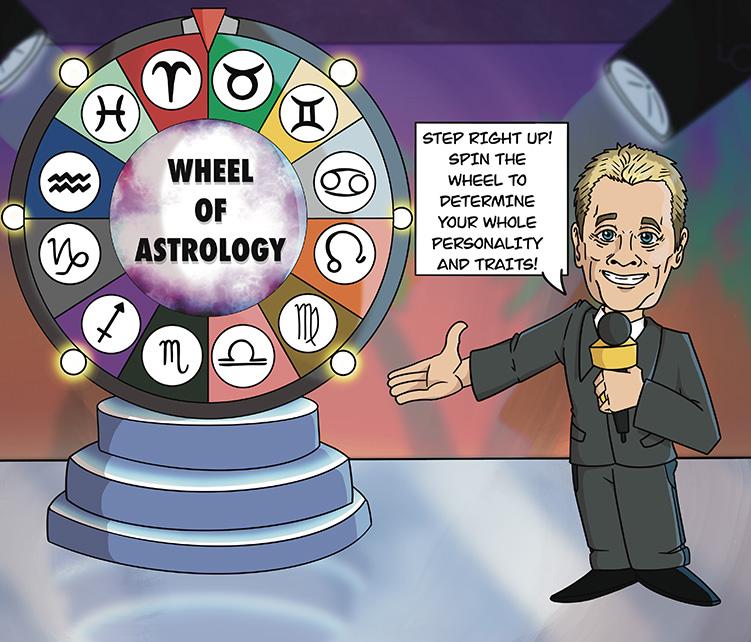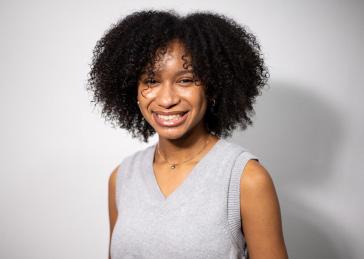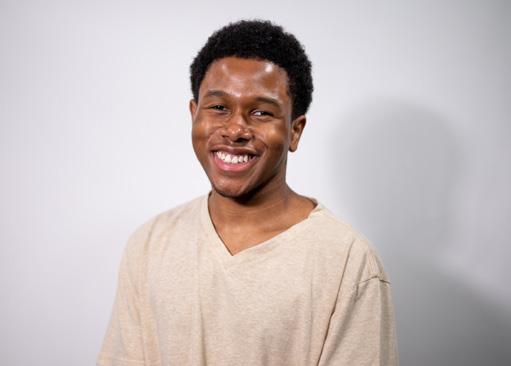
6 minute read
Horoscope culture is getting out of control
Horoscopes have made a rise in mainstream media, but how will a predetermined set of opinions affect people’s future decision-making?
Astrology and horoscopes have been used in different cultures around the world for years, but their recent spike in popularity has created a whole new community of people. Previously horoscopes would be general prompts or characteristics that could fit almost anyone but as the hype has grown so has the specificity.
Nowadays, it has become almost impossible to open up social media without seeing someone talking about correlating signs and what you should or should not be interested in based on your astrological placements. Although these may not have been intended to sway people’s thoughts so intensely, some people have taken these on as a law of sorts.
For some, the reading of horoscopes or traits that certain zodiac signs can have is just a simple hobby, for others, it is the foundation of their entire personality.

This can include changing their opinions on topics, situations or even the way they choose to form relationships.
Decision-making as an adult is an important skill so the fact that some people are willing to change their opinion on a moment’s notice is pretty concerning.
This goes further than just “what should I have for breakfast this morning?” Many of the videos seen in these TikTok trends have included things like “which signs to avoid” or red flags surrounding a certain sign, which led to even more
VIEWPOINTS
Disney’s videos of people completely exiting relationships due to zodiacs. How is it fair to judge someone just from their date of birth, something they can’t change?
It seems like every out-ofpocket comment can now be deemed ok if it ends with “I’m an ‘xyz’ zodiac sign, don’t judge me.” And if you decide that’s not a good enough reason there’s a pretty high possibility you could be labeled a bully.
The hypocrisy surrounding horoscopes can be damaging in a whole new way. Like most trends there is a possibility that this one will fizzle out, but the repercussions don’t fade quite as fast. For those who lived their lives dedicated to their zodiac it could result in a feeling of not knowing where to go or how to move on.
But, for those who had been on the receiving end of backlash or even those who don’t necessarily believe in horoscopes, this kind of dedication and fanaticism can lead them to being ostracized for no reason. Why does a person have to be born in a certain month to have a meaningful relationship with someone born in another month?
The stigma created by social media surrounding certain signs has created a wall that can almost seem impossible to get past. It seems like even mentioning the word Scorpio in a conversation can now be seen as a “red flag.”
In this way how can it be said that judging someone by a horoscope is any less cruel than judging someone off the way they look or how they talk? These are things that cannot be changed and we’re never in the hands of said person, yet it seems it’s becoming more and more socially acceptable to alienate someone if your excuse aligns with the stars.
What’s almost worse than writing people off based on their birthdays is using your own as an excuse for bad behavior.
Horoscopes can be a means to finding spiritual fulfillment or direction, but this doesn’t mean that it is a predestination for someone’s every decision. The way that astrological influencers present these ultimatums of “If you’re this you have to do this or else you aren’t going to have the life you want” is absolutely ridiculous.
You don’t need to know your sign to decide who you’ll love, and you certainly don’t need someone telling you your entire personality through a screen. Your destiny is your choice but you can’t choose when you’re born.
In a world oversaturated 10 times over with reboots, remakes, re-imaginings and sequels, it’s no surprise that many have grown weary of the idea of “revitalizing” beloved classics.
Many have tried their hand at remaking the classics of yesteryear, and some have seen great success, others not so much. As of late, most remakes and reboots are usually met with controversy that tends to cause division in certain communities. The latest example is Disney’s “The Little Mermaid”, which has caused a massive stir on the internet.
One may be inclined to wonder why such a thing is happening. Where is all this vitriol coming from? The long answer, Disney decided to pull the rug from under millions by changing the ethnicity of the leading role and giving the role of Scuttle, the talking bird, to Awkwafina. The short answer, Melanin and Awkwafina, I think.
Yeah, it’s not the most groundbreaking change, but I wouldn’t blame you for thinking it was. The response has been, to be as professional and polite as possible, a colossal embarrassment. It’s strange to see many so fussed about these changes when they’re for the most part totally harmless.
Ariel is an iconic Disney character and has been one that many young girls have looked up to since her debut. So injecting new blood into the character to become representative of a wider audience should be viewed as a positive, right?
What is it about Ariel that has allowed her to reach such an iconic status amongst Disney’s timeless lineup? What are the traits that made her so iconic? Is it the voice? The red hair? The blue eyes? The personality? It could be the tail, maybe, if you’re into that sort of thing.
I’d argue the traits that made Ariel so iconic have nothing to do with the color of her hair, eyes, tail or her skin. She struck a chord with so many because of her attitude, and her characterization.
I believe so long as the new Ariel can deliver on being a fun, interesting, and wellwritten character that the young girls of today can relate to on a deeper level than just skin color, and exist independently of her classic counterpart, her race should be of no concern.
The only factor standing in the way of this movie is the fact that it’s being produced by the same company that released Pinocchio (2022). What I’m saying is that this movie has the chance to be something special, but could also just as easily crash and/or burn.
From what we’ve seen in trailers, press releases and interviews, as well as what we’ve heard from the cast and writers, I believe this interpretation of Ariel and this movie could be a hit for Disney if they play their cards right.
As a collective, more of an effort is arguably being made to respect and appreciate Black bodies.
From casting Black actors and actresses in shows and movies, to being more receptive to hearing the stories and perspectives Black women and men have to share. The kicker though, is that in the midst of valuing Black life, white America has also played an integral part of defining it.
Black Enough.
What does that mean? Honestly, I’m not completely sure. Is Blackness talking a certain way, maybe it’s dressing a certain way or liking certain sports more than others? Maybe it’s believing in the same deity, or growing up with certain values.
While Black Americans may generally resonate with certain ideas or truths, it’s harmful for others, especially non-Black people, to question the validity of one’s Blackness.
It can say a lot about what narratives have been pushed about Black people, and which ones stick. Part of why representing Black people in a variety of ways is to humanize them. Just like the rest of those in society, Black people have their own unique dreams, interests, and passions.


Having gone to predominantly white schools throughout my life, I always felt like I was supposed to be living up to certain stereotypes in order to be deemed “Black enough.”
My experiences made me begin to become aware of how others were defining Blackness. What was so frustrating was how I was already having to be hyper aware of how I was presenting myself anyways. Not only was I growing up and continuously figuring out who I am and want to be, but I was also very concerned with making myself as easily “digestible” as possible. It seemed like being reserved, for example, was not a Black trait. What I found interesting was that Black women are often labeled as angry or difficult. It seemed like because I had more of a reserved and passive personality, the people at school figured that I must not be Black. As if defiance and aggression are the cornerstone of Blackness.
While Black people, like many marginalized groups in America have experienced struggle, why do we time and time again, portray Blackness through this lens. While it’s important for people to feel seen and understood in TV shows and movies, at what point does it become harmful to so closely associate your identity with strife?
Black human beings are multidimensional. While there’s value in illuminating the many obstacles that exist for Black Americans, it’s also important to present stories of Black people falling in love, or saving the day in the next Marvel movie.
There’s no such thing as “Black enough”. The community has already gone through enough trying to fit into a society that has historically not considered them when taking care of the American people.
It’s important to not let stereotypes dictate how we view people and remember that everyone’s differences are worth exploring.



